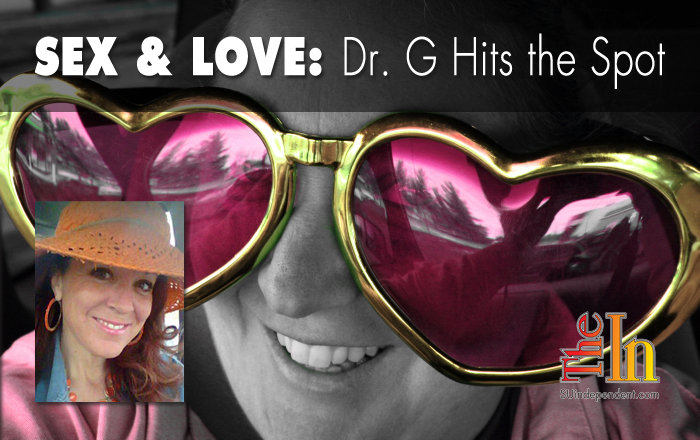Dear Dr. G,
After being married for 19 years, I am once again out in the dating world. My first marriage lasted for 15 years. The second was lasted four years. It isn’t easy. In fact, I hate it, but I don’t want to be alone forever.
My question is: Why do I keep ending up with the exact same guy I married in the first place — the guy who doesn’t really love me and who cheats? I look for people who are opposite from him, but after dating for a while, they end up being just like him.
Same old, same old
Dear Same old, same old,
Ah, the age-old question of partner choice surfaces again. I’m not sure that I have a completely scientific answer that will give you satisfaction. However, your scenario shows up more than you might think, so I get to address this issue often. I’m happy to share the information that seems to make sense to many clients. While it seems difficult to figure out how or why we like being with a person on a conscious level, most of the time the reasons we feel attracted to someone have a direct correlation to how we feel about ourselves, how we feel about other people, and what it is that we value in life. Chances are that you really don’t like yourself all that much. You probably don’t think you deserve the kind of love you want.
At an early age, we have role models to whom we look for love and affection. It could be a parent, a sibling, someone in your extended family, a close adult friend, etc. These role models may or may not be appropriate when it comes to the kind of love we actually want to have in life. If your parent was aggressive, controlling, or abusive to you, your little undeveloped brain could very easily believe that love means getting hurt. If the person who was supposed to love you didn’t treat you well, you will believe that being treated poorly means love. Whereas, if the person who was supposed to love you gave you everything you asked for no matter what, you will probably grow up to believe that when someone loves you, it means you get everything you want from them, and you may end up feeling entitled. If, however, your role model for love was someone who had good boundaries, and treated you with love and respect, you will look for those qualities in a partner.
We see the world through our own lens, and our lens is made up from our experiences. Because of this, our mind only allows us to see the familiar at first. We recognize what we know. We are comfortable with what we know. We gravitate to what we know. Our brain doesn’t usually like us to go into foreign, strange territory, and our heart definitely doesn’t want us to go there. Moving outside of our comfort zone takes a great deal of work and determination. Start by loving yourself like nobody else will.
In your situation, where the people to whom you are attracted are unable to love you appropriately, you have two options: You can continue to put up with what you have at this point, or you can begin to change your attraction criteria. If you choose the latter, you must begin by realizing that you actually do have a choice in what attracts you to someone. Believe it or not, this will happen spontaneously when you understand that you do not have to be with partners who do not love you for who you are, and those who do not respect you. The only way to accomplish that feat is to learn to respect and love yourself.
Really! We do not expect to be treated by others any better than we treat ourselves. When you begin to see and believe your worth, your value, and reasons to love yourself, you will start recognizing the people who feel that way about you as well. At that point, the people you will begin noticing and the people to whom you feel attracted will surprisingly (but not all that surprisingly) end up being the kind, authentic, respectful people you’ve never noticed before.
If you feel like you need help seeing yourself differently, finding your worth, or perhaps adjusting your love lens, a good mental health therapist should be able to help you. When all is said and done, though, Steve Maraboli actually answers your question best with this quote: “The most powerful relationship you will ever have is the relationship with yourself.”
Love you! (Seriously, try it.)
Gretchen Lambert-Wiltbank is a licensed associate mental health counselor. She has a bachelor’s degree in special education, and a master’s degree in clinical mental health counseling. (“Dr. G” is her pen name. She isn’t a REAL doctor.)




